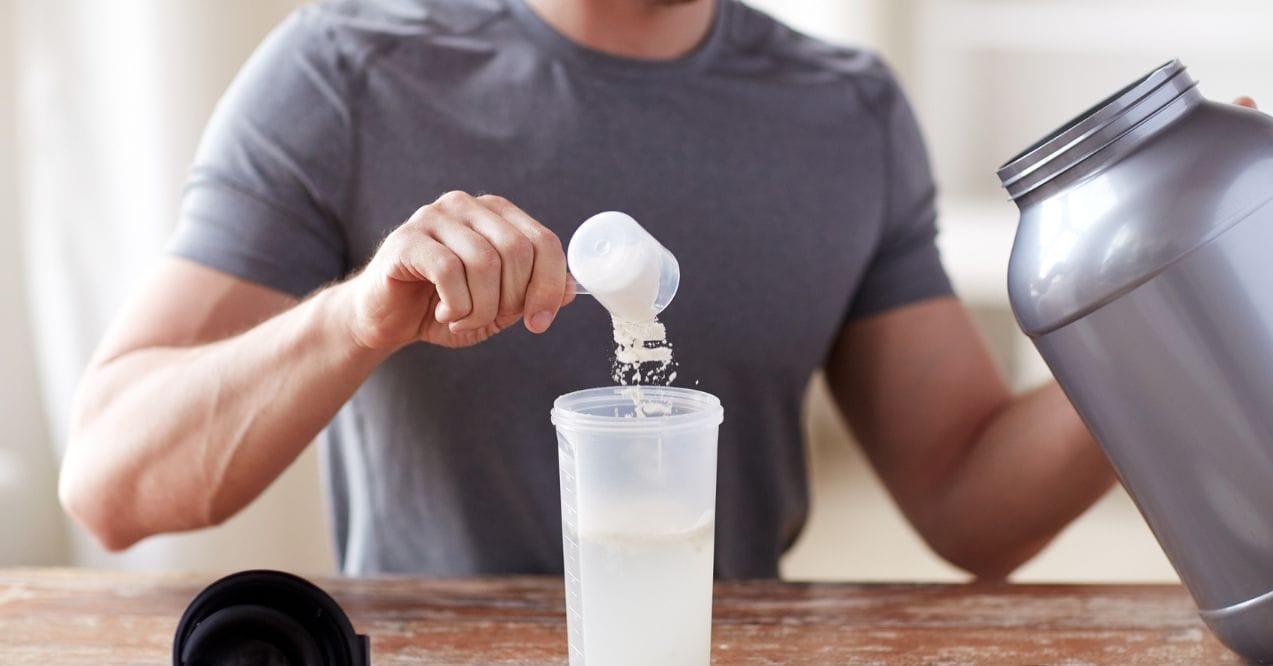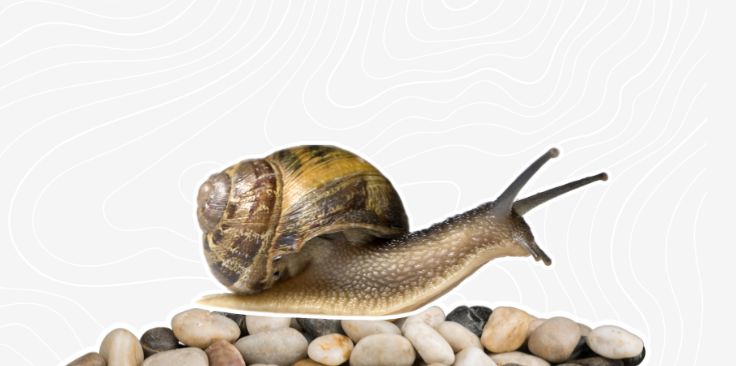8 Best Teas for Gut Health
Throughout history, many communities have used tea to ease digestive issues, but what are the best teas for gut health? Are they the same as the best teas for mental clarity? Can they work as the best vitamins for gut health? The practice of taking tea began in China in 2737 BC when apparently, a Chinese emperor and herbalist, Shennong, was sitting under a tree, and leaves from a Camellia sinensis plant fell into his boiling water. Shennong took the concoction and found it helped improve his digestion. He recommended it to others, and herbalists began using it to treat digestive problems, including bloating, diarrhea, and constipation.
There are hundreds of tea varieties, but all teas generally fall under two categories: true and herbal. True teas come from processing the leaves of the Camellia sinensis plant, originally from China and parts of India. On the other hand, herbal teas or tisanes are an infusion of various flowers, roots, leaves, fruits, or barks of almost any edible, non-tea plant, such as ginger, dandelion, chamomile, and peppermint. Unlike true teas, herbal teas don’t have caffeine.
In recent years, scientific research has begun to support the traditional use of best-quality herbal teas for such things as gut health and acne. Your gut comprises your whole gastrointestinal system; it includes your intestines, colon, and stomach. The gut breaks down the foods you eat and absorbs nutrients that support your body’s functions. Therefore, the state of your gastrointestinal tract affects your overall wellness, including digestion, immune and endocrine system, and mental, cardiovascular, and brain health.
Medical research shows a strong correlation between an unhealthy gut and dysfunctions such as inflammatory bowel (IBD), type 2 impaired blood sugar metabolism, excess body weight, irritable bowel (IBS), colon cell malignancies, allergies, and mental disorders. Therefore, tea is a pleasant step to support your gut health, and combining tea with superfood powders can enhance its benefits. This article will help you understand how different types of tea can boost gut health.
Key Article Findings:
Detecting the Signs of an Unhealthy Gut
An unhealthy gut results when your gut flora consists of too many harmful bacteria or insufficient diversity of the good microbiome. This scenario leads to an imbalance called dysbiosis, which can cause severe health disorders.
Researchers have found that pathogenic microbes within the gut may cause different types of malignant cell growth. Another study established a strong relationship between gut health and cardiovascular dysfunction (CVD). It is, therefore, vital to identify the symptoms of an unhealthy gastrointestinal system so that you can seek medical advice or appropriate remedies before the bad bacteria cause havoc in your body.
An unhealthy gut can result from uncontrollable factors such as how you breastfed as a baby, your environment, birth mode, and age. It can also result from the following controllable factors:
- Consuming worst foods for gut health.
- Too much alcohol intake and cigarette smoking
- Lack of enough sleep
- Use of antibiotics
- Insufficient intake of prebiotics and probiotics
- Regular stress
- Insufficient physical activity
- Eating too many ultra-processed foods
The common indicators that there are issues with your gut health include:
- Sleep disturbances or fatigue
- Unintentional weight fluctuations
- Sugar cravings
- Digestive issues like gas, bloating, constipation, diarrhea, and heartburn
- Food intolerances
- Skin irritations
- Moodiness, irritability

Best Teas for Gut Health
There are so many tea varieties in the market that you may wonder what tea is best for gut health. While all teas have benefits, some may be superior to others in treating your gastrointestinal system. Below is a compilation of the best tea to drink for gut health.
1. Green Tea
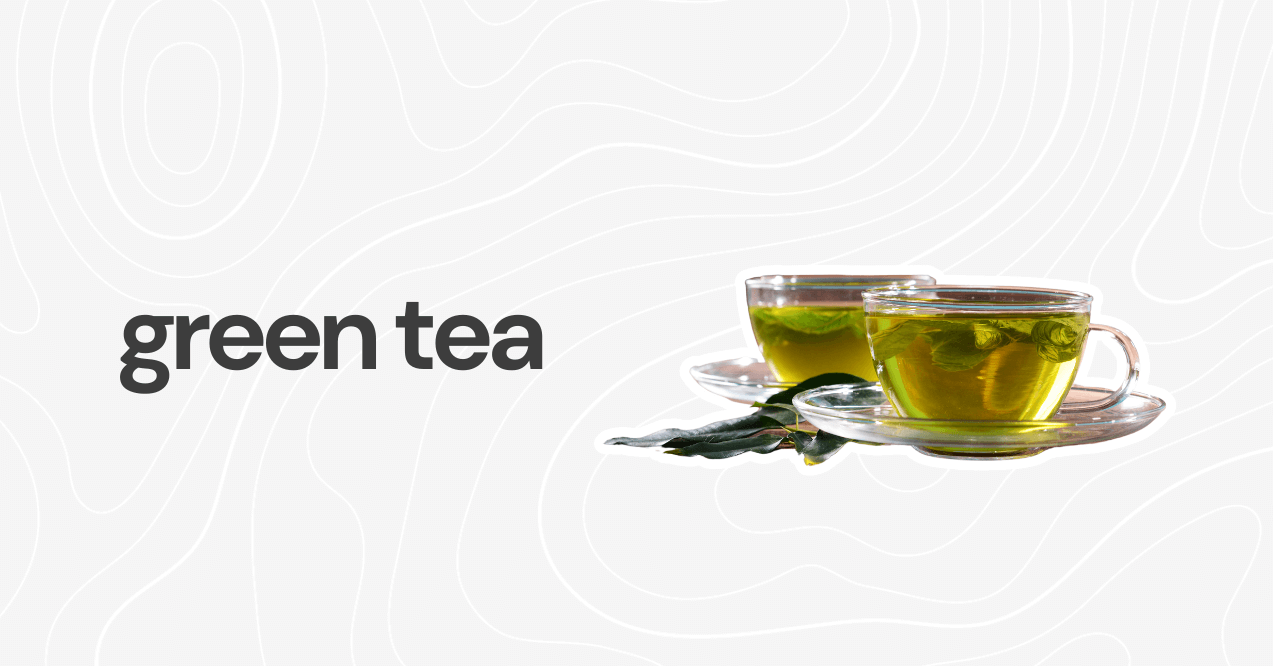
One of the most well-known teas in the world. It has less caffeine than black tea, is unoxidized, and brews to a vegetal taste. Research shows green tea is rich in polyphenols and catechins, which can help in the growth of healthy bacteria, inhibit the growth of detrimental ones, or increase the production of beneficial metabolites such as short-chain fatty acids. It also has antioxidants that can help reduce gut inflammation.
Both people in China and Japan consume green tea. However, the tea preparation in the two countries is different, but both make the best green tea for gut health. People in Japan prepare this tea by steaming leaves from the Camellia sinensis plant immediately after harvesting them to stop oxidation. Sometimes they shade the leaves for several weeks before harvest to increase their chlorophyll and caffeine levels. This preparation method gives Japanese green tea a slightly savory, oceanic quality and brews light emerald green.
On the other hand, people in China produce this tea by panfrying (or pan-firing) leaves from the tea plant. The tea has a mellow flavor, brews a soft golden color, and is milder than Japanese green tea. After panfrying or steaming, people press or roll the tea leaves into their final shape and dry them.
2. Peppermint Tea
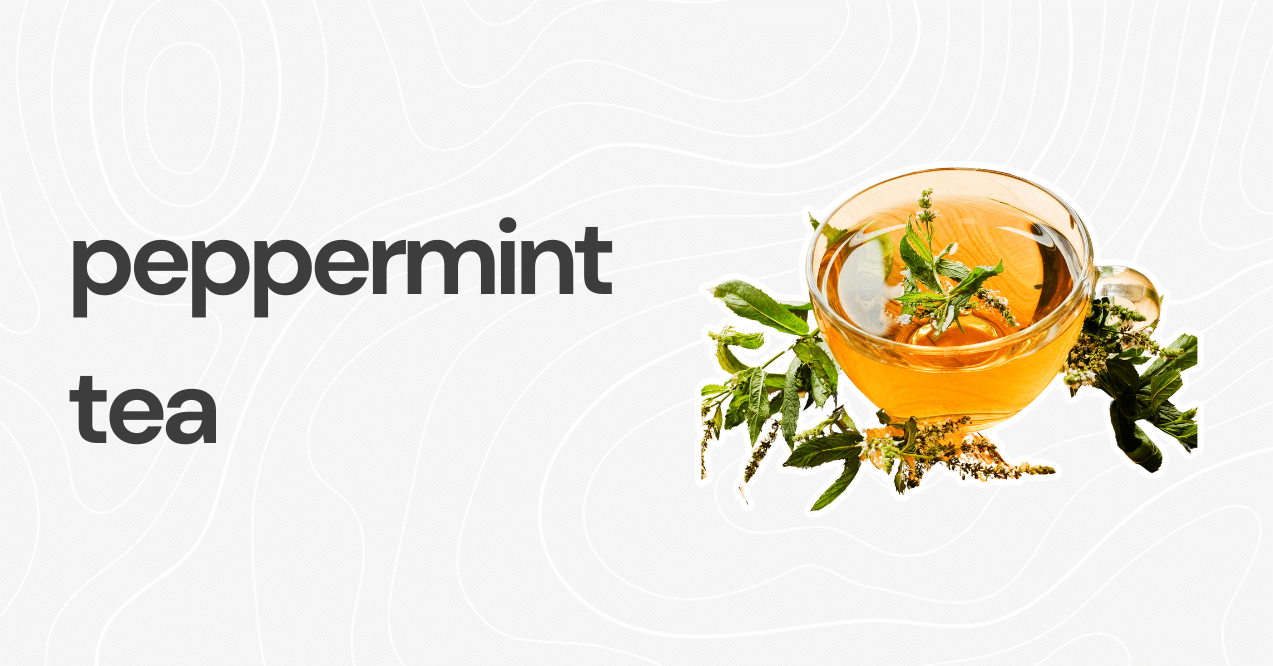
Peppermint tea is one of the most aromatic and refreshing teas and one of the best herbal teas for gut health. It is caffeine-free, mildly sweet, and minty, leaving a cooling sensation in the mouth. The preparation of this tea relies on the dried leaves of the Mentha piperita plant. According to researchers, the tea is native to Europe and Asia and may have been used by healers even in ancient Egypt, as there was evidence of dried peppermint leaves in Egyptian tombs..
Peppermint tea from wild mint leaves was popular among Native Americans for relieving an upset stomach. The leaves from the Mentha piperita plant contain essential oils, including menthol, menthone, and limonene. Research shows these compounds can relax your digestive system, promote overall digestion, and ease discomfort and is one of the best teas for bloating. The essential oils could also reduce spasms in your gut, alleviating irritable bowel (IBS) symptoms by minimizing the severity of smooth muscle contractions.
3. Ginger Tea
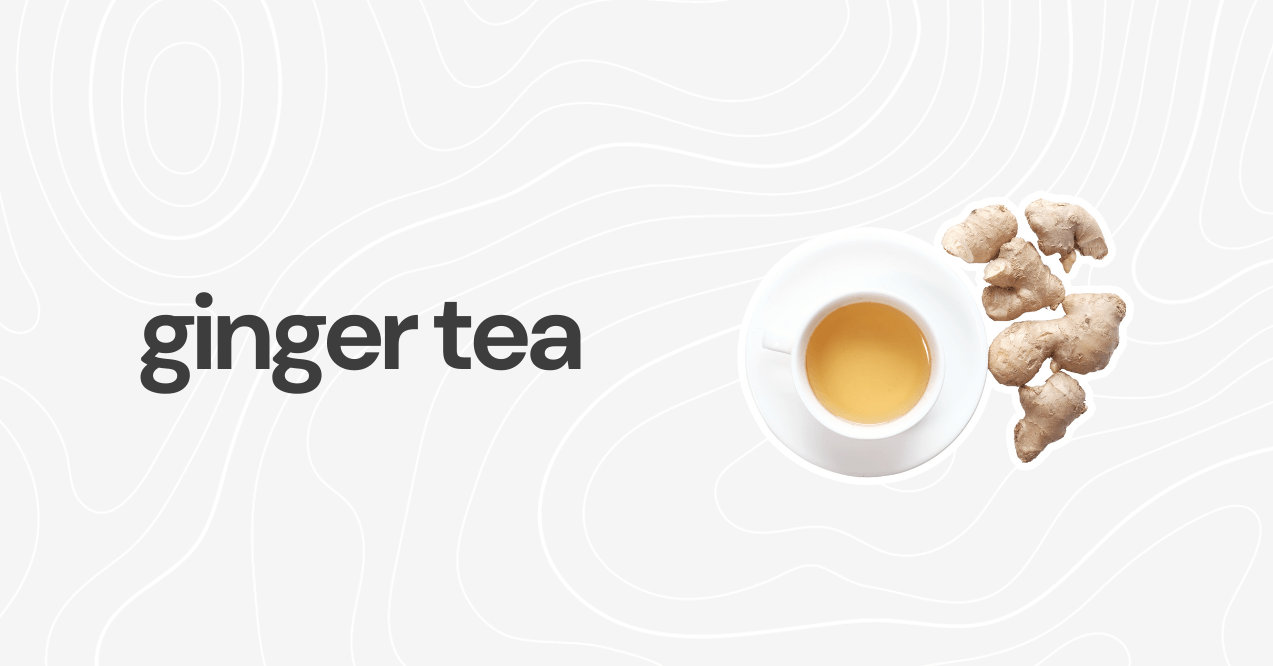
Ginger has been part of traditional medicine in Asian countries for centuries to improve digestion, the common cold, and inflammation. You can make ginger tea from fresh or dried roots of the ginger plant. The tea has a sharp, spicy taste. Studies show that the compounds found in ginger, including shogaols and gingerols, have antioxidant, anti-allergic, antimicrobial, and anti-inflammatory properties and help inhibit malignant cell growth.
Therefore, while there’s not enough research on the benefits of ginger tea, it’s safe to say that it can help fight against harmful microbes in the gut. The tea may also reduce the symptoms caused by the pathogens in the gut, such as bloating and flatulence. You can prepare ginger tea on its own or blend it with other herbs such as peppermint, lemongrass, or turmeric and incorporate it into a successful gut detox program.

4. Chamomile Tea

Most people know chamomile tea for its relaxing and sleep-inducing properties, but it can also promote good gut health. Chamomile tea is an herbal tea elaborated from dried flowers of the Matricaria species of the Asteraceae plant family. The herb originates in Egypt but is also grown in temperate climates, including South Africa, India, Australia, and South America.
The tea is caffeine free and has a subtle honey-like sweetness, gentle notes of apple, and a floral scent. Chamomile contains the antioxidant apigenin, which helps ward off harmful bacteria from your gut. Studies also show that it has anti-inflammatory properties and may promote proper digestion. One study showed that chamomile has properties that can reduce acidity in the gastrointestinal system, inhibiting the growth of bacteria that lead to ulcer development.
5. Fennel Tea
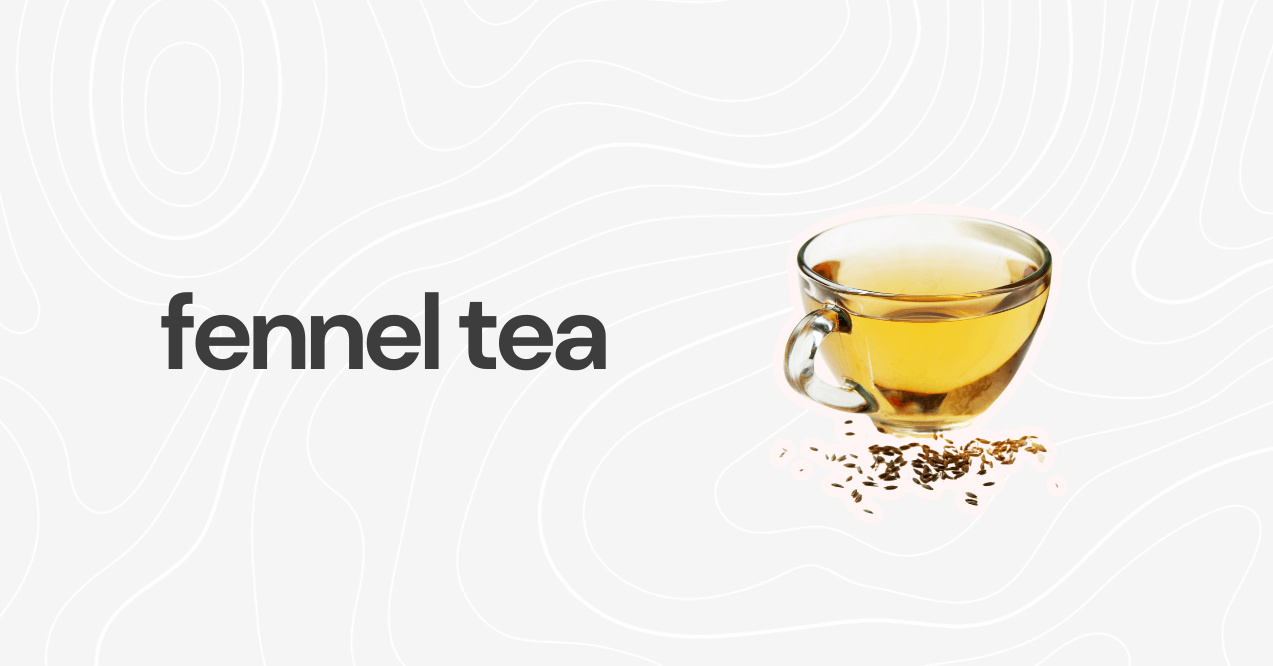
The fennel plant grows natively in the Mediterranean and has been used for medical purposes for centuries, especially for digestive health. You can use its dried and slightly crushed seeds to make an herbal tea that you can take cold or warm. Fennel tea has a relaxing scent, tastes like licorice, and leaves a slightly bitter aftertaste.
In one study, researchers found that fennel seeds contain a significant amount of antioxidants known as flavonoids. Therefore, fennel tea can help fight off harmful bacteria in the gut. The tea can also help reduce gas, bloating, and constipation since fennel is a good source of anethole compound, which works great to relax the smooth muscles of the digestive tract.
Fennel seeds also contain essential oils that are a potent anti-inflammatory agent. Therefore, taking this tea can help reduce pro-inflammatory molecules in the gut, improve digestion, and alleviate irritable bowel (IBS) symptoms.
6. Pu-erh Tea
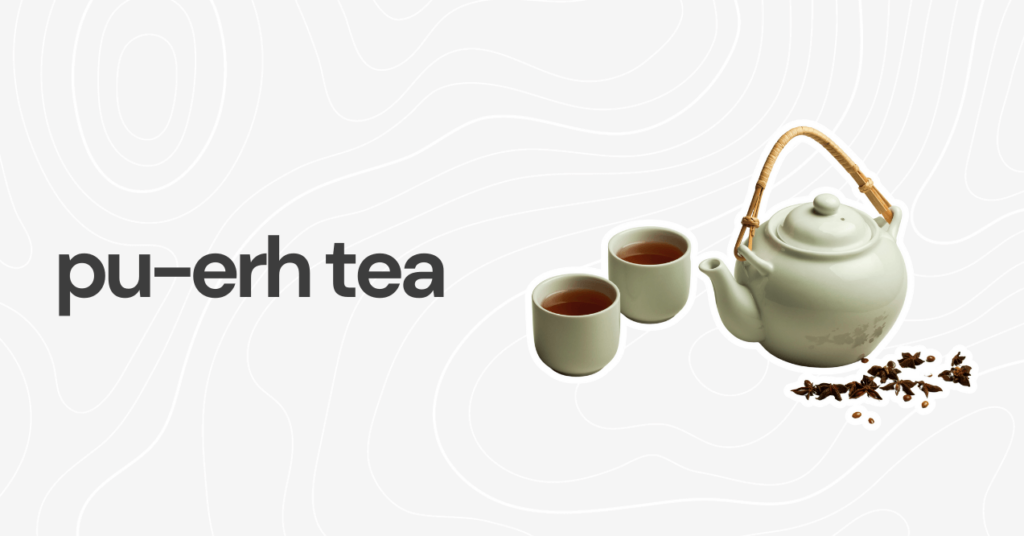
Pu-erh tea is a true tea that originated in the city of Pu-erh in the Yunnan province of China. Its preparation process involves harvesting, steaming, or pan-firing the leaves of the Camellia sinensis plant to halt oxidation. After this, shaping and drying the leaves is essential. Finally, the leaves go through a fermentation process for several years. Consequently, the tea brews a rich, earthy, and deeply satisfying taste with inky brown-black color. It’s vital to note that the tea is caffeinated and may not be the best if you’re looking for a relaxing tea to take before bed.
How does tea help your gut? It can significantly increase the healthy bacteria in your gastrointestinal tract, thus improving digestion. Also, drinking this tea helps curb the growth of unhealthy bacteria by breaking down oily and fatty foods, facilitating the development of good bacteria in the gut.
7. Dandelion Tea

This tea comes from roasted dandelion leaves or roots. The tea is dark and has a slightly bitter, smoky, and earthy flavor. It originally grew in Europe and Asia, and physicians used it to treat digestive and liver issues. The plant has inulin, a type of fiber that acts as a prebiotic and can therefore feed the good bacteria in your gut.
According to various researchers trying to establish the benefits of dandelion tea, the plant has also been found to increase the body’s natural probiotic properties by boosting a beneficial bacteria called lactobacillus. This bacteria can help to improve digestion and overall gut health. The tea may also help protect the cells in your gut from damage because of its antioxidant properties.
8. Licorice Root Tea
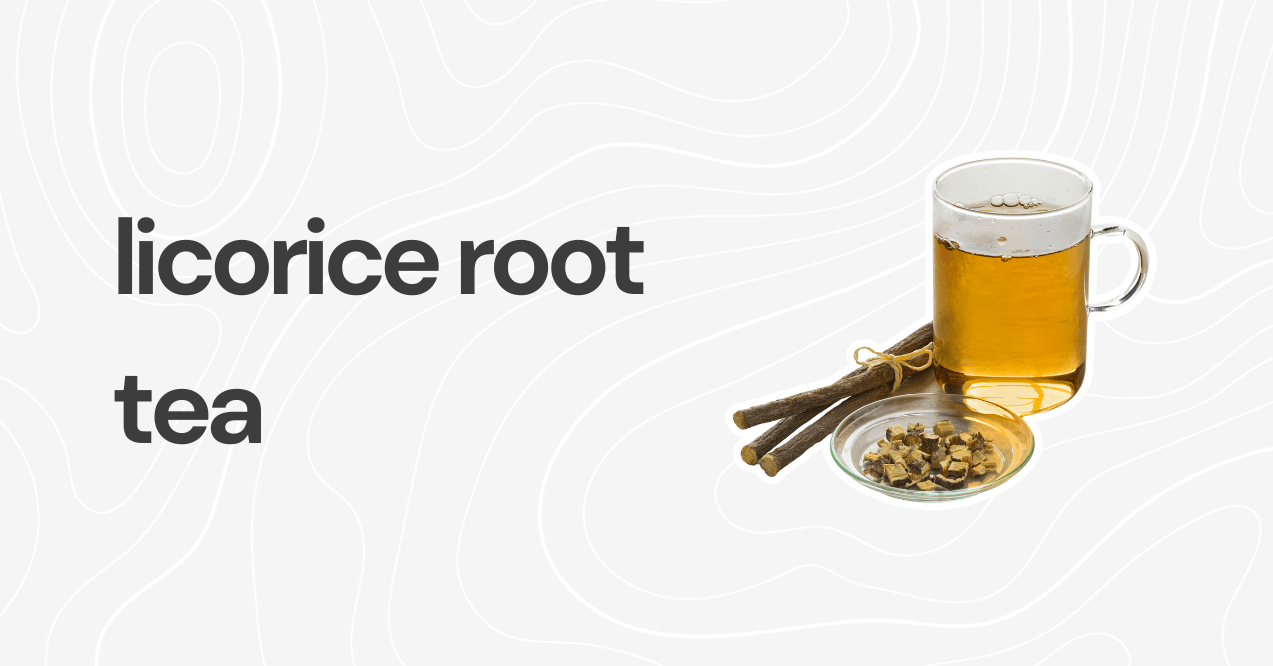
This herbal tea is exceptional for gut health. Licorice is a native plant of Southern Europe and Western Asia. The plant is popular in traditional Middle Eastern, Greek, and Chinese medicines to reduce inflammation, treat upper respiratory problems, and soothe an upset stomach. You can make herbal tea by boiling licorice roots and adding other herbs.
The tea is naturally sweet, with a hint of mint and anise. Licorice root’s primary active compound is glycyrrhizin, which has antioxidant, anti-inflammatory, and antimicrobial properties. Therefore, taking licorice tea can help relieve digestive tract inflammation, such as gastritis. The antimicrobial properties can also help protect the gut lining from damage by pathogens, inhibiting gut issues such as ulcers. One research shows that tea can also alleviate gastroesophageal reflux (GERD) symptoms, such as heartburn and acid reflux.
Superfood Powder Drinks for Gut Health
Aside from taking teas for your gut health, you may also want to consider trying superfood powder drinks, especially if you’re exploring whether do probiotics help with bloating. These drinks blend various high-nutrient plant-based foods, including veggies and fruits. They have attained high popularity in the past few years, and you can find them either as cold or hot drinks, packaged as smoothies or juices.
They can be a more convenient and effective way to support gut health than taking tea because they contain many vegetables and fruits in a single drink. Most of their ingredients promote the growth of a healthy microbiome and improve digestion. Here are some superfood ingredients that such drinks contain:
- Probiotics
- Fiber-rich foods include chia seeds, flaxseeds, psyllium husk, and acacia fiber.
- Greens and vegetables like spinach, kale, broccoli, spirulina, and barley grass
- Prebiotics like chicory root, Jerusalem artichoke, dandelion greens, and garlic.
- Digestive enzymes like amylase, protease, and lipase.
- Ginger and turmeric.
Choosing a superfood powder drink with organic ingredients without added sugars or artificial ingredients is vital. It’s also essential to consult a healthcare provider before taking superfood drinks and to follow the recommended dosage instructions. Some popular superfood drink brands include Trumeta Metabolic Greens, Athletics Greens, WelleCo’s The Super Elixir, Daily Greens, Arbonne’s BeWell Superfood Greens, and 8Greens.
Why You Should Try Trumeta Metabolic Greens
As a blend of 30+ superfoods, Trumeta Metabolic Greens is one of the best superfood powder drinks in the market. It contains a variety of nutrient-dense vegetables, fruit, and greens, such as spirulina and wheatgrass, known for their high concentration of vitamins, minerals, and antioxidant properties. These properties improve gut health and reduce digestive discomfort, including constipation, gas, bloating, irritable bowel symptoms. Moreover, Trumeta Metabolic Greens also contains an intricate blend of metabolic ingredients and probiotics. These components aid digestion, improve nutrient diversity, nutrient absorption, and promote a healthy gut environment.
The product is USDA-certified, vegan, gluten-free, dairy-free, non-GMO, soy-free, nut-free, shell-fish-free, and sesame free. It’s also has a low-glycemic index. You can consume Trumeta Metabolic Greens by mixing a serving of the powder with water or adding it to smoothies. The resulting drink is so delicious that you won’t even believe you’re taking a vegetable-packed drink. Within several months of taking this superfood drink, you may notice reduced bloating, improved metabolism, and more energy and mental clarity.

You can also try the Trumeta Metabolic Reds, a blend of over 25 organic superfoods, including acai berry, bilberry, goji berry, pomegranate, raspberry, papaya, and beets. Most of these ingredients have proven antioxidant properties that promote healthy digestion and overall gut health. It is critical to note that while Trumeta Metabolic Greens and Reds can help improve your gut health, they should not be a substitute for seeking medical care.
The Deep Link Between Tea and Gut Health
Over the centuries, people from different cultures have taken teas, especially herbal teas, to promote gut health. For example, in China, for 2000 years, people have used ginger tea to relieve nausea and vomiting. On the other hand, peppermint tea is a popular remedy for indigestion and gas in India. In Europe, people use chamomile tea to calm the stomach and promote better sleep and relaxation.
Modern science has done various studies that support using teas to promote gut health. For example, a study published in the Phytomedicine Journal found that ginger tea can help reduce gut inflammation. Another study found that peppermint tea can help improve irritable bowel syndrome symptoms (IBS).
An important part of your immune system lies in your gastrointestinal tract. Your gastrointestinal tract has trillions of bacteria, viruses, and fungi that comprise your gut microbiome. The microbes and their metabolites influence digestion, metabolism, inflammation, local mucosal homeostasis, and interactions between multiple body systems.
Therefore, an imbalanced intestinal microbiota called dysbiosis can significantly affect your immune health. This imbalance can also affect your brain health because millions of nerves connect the central and gastrointestinal systems. The gut also produces vital brain chemicals (neurotransmitters) known as serotonin. Therefore, alteration in the gut flora can change the messages sent to the brain, causing mental health disorders, dark moods, and nervousness.
Teas contain many antioxidants that can help protect the integrity of the gut health and lining, thus inhibiting harmful bacteria from sticking to the intestinal wall. Tea also contains gut-friendly bacteria that contribute to a healthier and more diverse gut microbiome.
Your Tea Drinking Guide for Optimal Digestion
After understanding the best tea to drink for gut health, it’s vital to look at how and when to take it for optimal results. Below are a few tips on ensuring your gut reaps maximum benefit from taking tea.
Seek Medical Advice
You must talk to a doctor before incorporating any tea into your gut health regimen. While most teas are beneficial, some may contain compounds that could harm people with certain medical conditions or pregnant women. For example, peppermint may be unsafe for people with gastroesophageal reflux disease (GERD), gallbladder, bile duct and liver disorder, kidney stones, or hiatal hernia.
Watch the Quantities
Taking 3-4 cups of tea a day is safe for most people. It’s crucial to note that overconsuming tea may have adverse effects such as reduced iron intake, dizziness, caffeine dependence, and pregnancy complications. It’s best to start with small amounts of tea and gradually increase your intake as you observe your body’s response.
Follow the Correct Preparation Method for Each Tea
You must follow the proper preparation method for the beneficial compounds of herb leaves, roots, or flowers to get into your tea and benefit your digestion. For example, if the manufacturer’s instructions require you to let the tea steep for 5 minutes, you must do it.
Sip Tea After Meals
Taking tea about 30 minutes after a meal is best to improve digestion. Taking tea on an empty stomach can irritate the gut lining.
Listen to Your Body
It’s essential to note how your body and digestion feel after taking a specific tea since everyone’s digestive system is different. If you notice any adverse effects from one tea type, it’s best to adjust your preference.
Key Takeaways
As discussed in this article, the best tea for gut health is essential for overall wellness. There is a strong connection between gut health and aspects such as your immune system and brain health. The existing evidence suggests teas can be a pleasant and effective way to support gut health. If you are looking for a natural way to improve your gut health, consider adding teas to your daily routine.
Monitor any improvements in your digestive health to establish if your chosen tea is working to achieve your desired results. Also, consider adding superfood powder drinks such as Trumeta Metabolic Greens to enhance the growth and diversity of healthy gut bacteria and obtain several other health benefits. However, it is essential to note that taking herbal teas and superfood powder drinks, while helpful, should not be a substitute for seeking medical attention. If you have severe problems with your gut, prioritize seeking medical help.
Yes, traditional and modern science suggest teas like peppermint and ginger can help alleviate symptoms like indigestion, bloating, and nausea. Herbal teas like ginger tea have anti-inflammatory properties that ease digestive discomfort, while peppermint tea may relax the gastrointestinal tract muscles, improving digestion.
The best teas for gut health are peppermint, green, fennel, chamomile, dandelion, licorice root, and pu-erh. These teas contain anti-inflammatory properties that help improve digestion. Green tea has antioxidants known as polyphenols that help reduce unhealthy bacteria in the gut, promoting a healthy gut microbiome.
Ginger tea is one of the most effective herbal teas for that bloated feeling. Ginger contains compounds called shogaols and gingerols that help reduce gut inflammation, improve digestion, and alleviate symptoms of an unhealthy gut, such as bloating.
Taking too much tea during pregnancy can lead to complications. Therefore, talking to the doctor before consuming any when you’re pregnant is vital.
Advertisement. This site offers health, wellness, fitness and nutritional information and is designed for educational purposes only. You should not rely on this information as a substitute for, nor does it replace, professional medical advice, diagnosis, or treatment. If you have any concerns or questions about your health, you should always consult with a physician or other health-care professional. Do not disregard, avoid or delay obtaining medical or health related advice from your health-care professional because of something you may have read on this site. The use of any information provided on this site is solely at your own risk.
